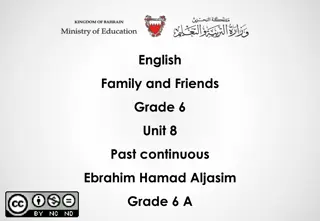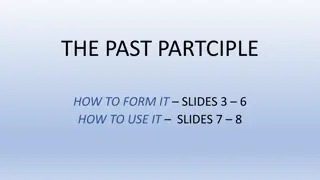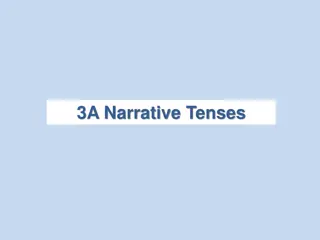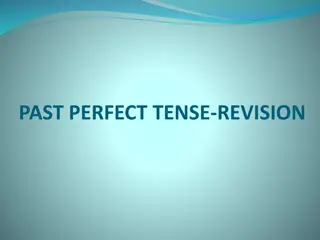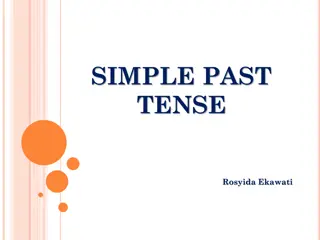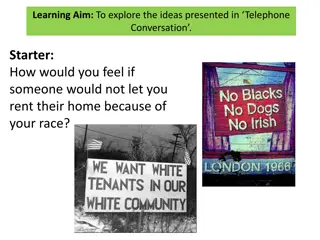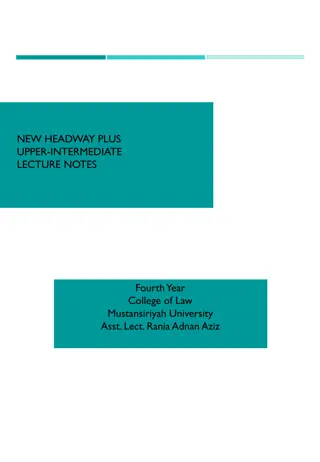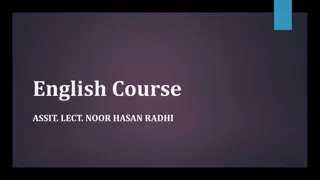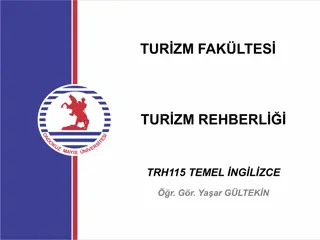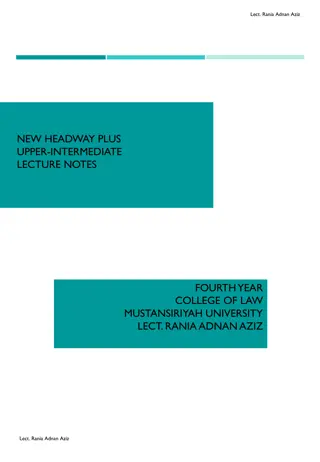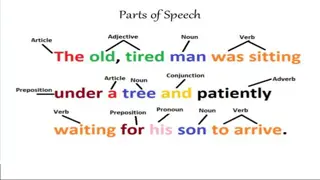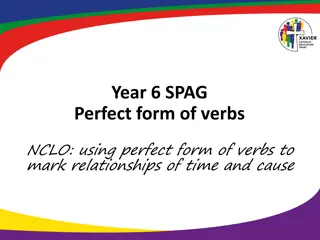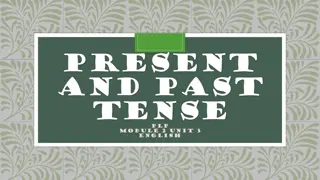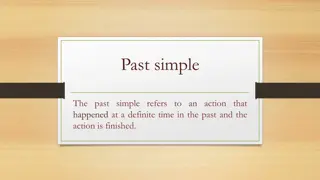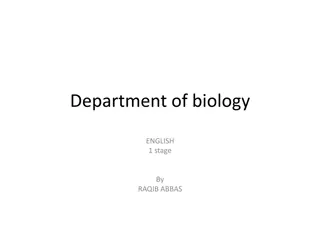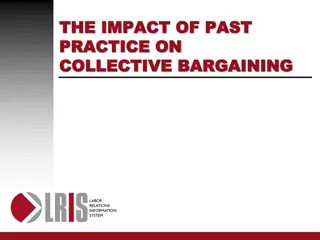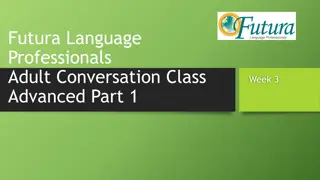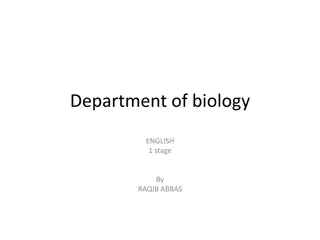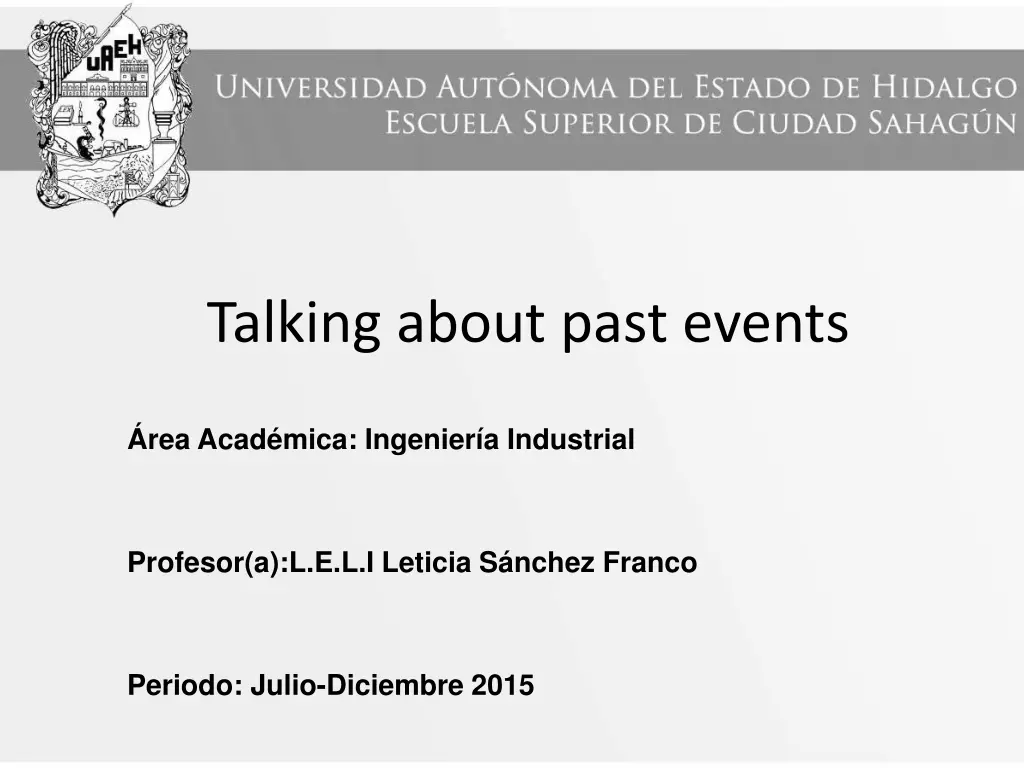
Enhancing Communication with Linking Words in Academic Conversations
When discussing past events in academic settings, providing additional details and using connectors is essential for coherence. This conversation about a trip to Madrid demonstrates the importance of linking words like 'and', 'but', 'so', 'because', and 'when' for clear communication. Learn how to join sentences effectively to convey ideas fluently.
Download Presentation

Please find below an Image/Link to download the presentation.
The content on the website is provided AS IS for your information and personal use only. It may not be sold, licensed, or shared on other websites without obtaining consent from the author. If you encounter any issues during the download, it is possible that the publisher has removed the file from their server.
You are allowed to download the files provided on this website for personal or commercial use, subject to the condition that they are used lawfully. All files are the property of their respective owners.
The content on the website is provided AS IS for your information and personal use only. It may not be sold, licensed, or shared on other websites without obtaining consent from the author.
E N D
Presentation Transcript
Talking about past events rea Acad mica: Ingenier a Industrial Profesor(a):L.E.L.I Leticia S nchez Franco Periodo: Julio-Diciembre 2015
Resumen Al intercambiar informaci n sobre eventos acontecidos en el pasado, en ocasiones es necesario mencionar detalles adicionales sobre dichos acontecimientos y el uso de conectores permiten dar mayor fluidez y coherencia a nuestras ideas. Abstract When we exchange ideas about past events it is sometimes necesssary to give extra details. Then the use of some linking words helps us to express our ideas in a more fluent and coherent way. Key words: trip, factory, company, facilities, purchasing department, meet, travel, and, but, so, because, when.
Well, it was tiring trip but it was really interesting. Hi, David. Did you have a good trip to Madrid? That s nice. You know, I met the purchasing and the managing director. Really! I went to Madrid when I was seventeen. They wanted to discuss the new contract with our company, so we met in a restaurant to discuss it. And, what did you do? DAVID Did you visit their factory? Yeah, I had a tour and the facilities are really modern. JOHN Sorry, I wanted to know becauseI m going to visit the company next week. Why are you so interested in my trip, John?
Joining sentences We can join sentences using and, but, because, so, or when. In a written text, we use a comma before most of the linking word except because and when. I met the purchasing,and the managing director. The trip was tiring, but very interesting. They wanted to discuss the new contract,so we met in a restaurant. I wanted to know because I m going to Madrid next month I went to Madrid when I was seventeen.
and includes additional information I wrote a report and sent it to my boss I wrote a report. I sent it to my boss. Workers assembled and evaluated the car. Workers assembled the car. Workers evaluated the car. The manager welcomed the authorities and gave a speech. The manager welcomed the authorities. The authorities gave a speech.
but mentions opposite information The company hired a new worker, but he doesn t have enough experience. The company hired a new worker. He doesn t have enough experience. The secretay typed the report but she didn t send to my e-mail. The secretary typed the report. She didn t send to my e-mail. The company bought a new machine but the workers didn t know how to operate it. The company bought a new machine . Workers didn t know how to operate it.
so mentions the result The manager wanted to communicate a message, so he called for a metting. The manager wanted to give a message He called for a metting. A machine didn t work so, the engineers evaluated the problem. A machine didn t work. The engineers evaluated the problem. There was an interesting engineering conference so, I registered immediately. There was an interesting engineering conference. I registered immediately.
because provides a reason The machine broke down because it didn t receive maintainance. The machine broke down. It didn t receive maintainance. Safety rules were important to implement because we wanted to prevent accidents. Satety rules are important to implement. We wanted to prevent accidents. An engineer designed a machine because the company needed to manufature a new piece. An engineer designed a machine. The company needed to manufactue a new piece.
when especifies the moment The purchasing department called me when I was in a meeting. The purchasing department called me. I was in a meeting. There was an accident when the machine was working. There was an accident. The machine was working. The company hired new employees when they opened a new plant. The company hired new employees. They opened a new plant.
Referencias Evans V. & Dooley J. (1998). Enterprise 1 Coursebook Beginner. Express Publishing.

